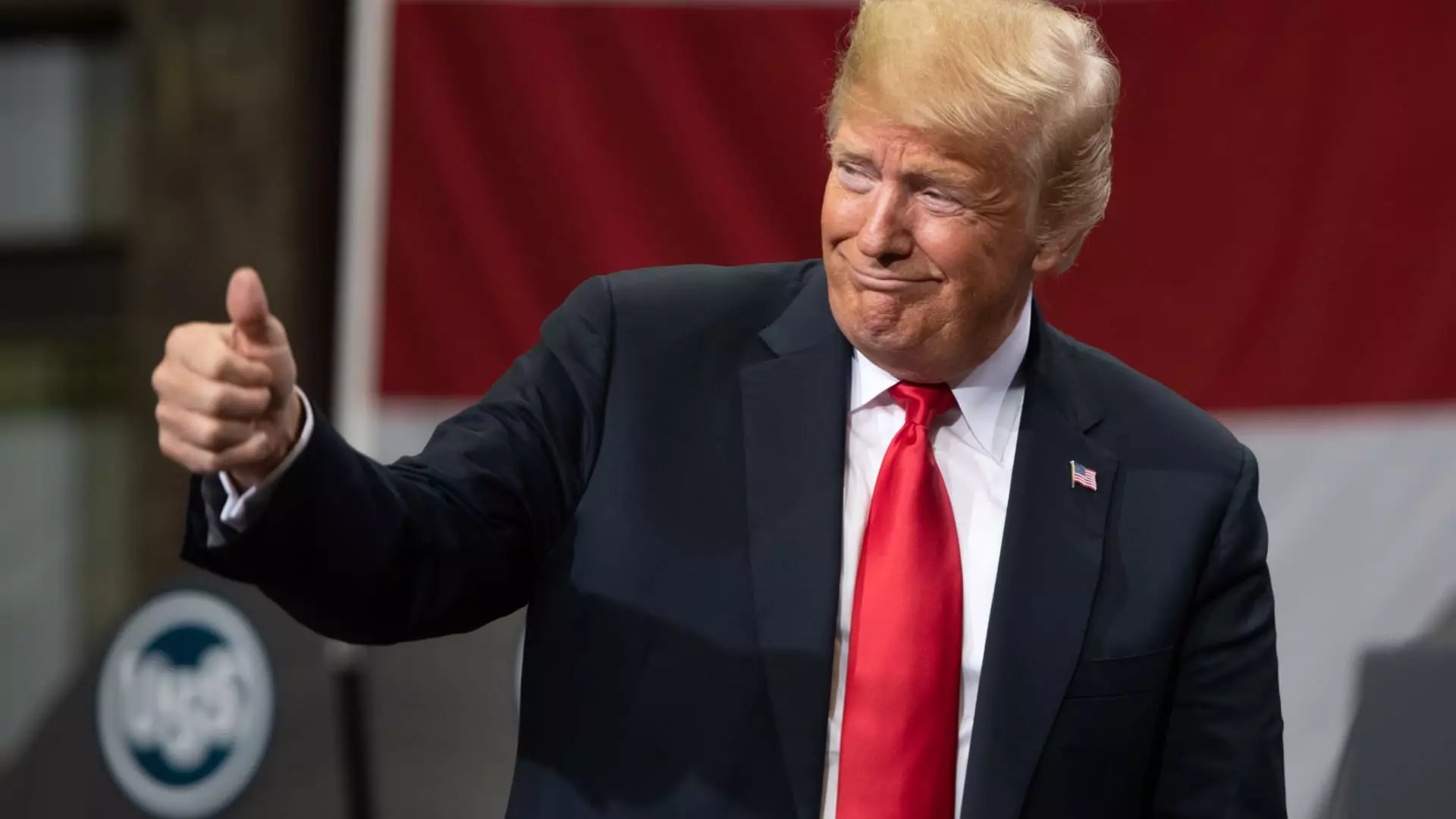In a turbulent market landscape, few events encapsulate the unpredictability of stock trading like President Donald Trump’s latest escapade, wherein he urged investors to buy stocks right before the market took a wild swing. On the morning of a seemingly ordinary Wednesday, Trump’s emphatic declaration on Truth Social—“THIS IS A GREAT TIME TO BUY!!!”—sent shockwaves through the trading community. While it was ostensibly an endorsement for stock purchases, the reality behind his statement is a complex web of influence, volatility, and perhaps, a hint of self-interest.
It’s an ironic twist of fate that those who took Trump at his word reaped windfall profits shortly after. Many began investing immediately based on his timing, only to find themselves on a roller coaster ride of returns as the market responded to his subsequent retraction of damaging tariffs. In essence, what was meant to be a supportive shout-out to investors morphed into an episode of market hysteria, leaving one to wonder: was this a deliberate nudge or merely a reckless gamble?
Record-Breaking Reversals and Notable Gains
The numbers speak volumes. Those who invested $1,000 in the SPDR S&P 500 ETF at the precise moment of Trump’s tweet saw their investment swell, making a tempting $1,110 at the peak of the trading day—a 10.5% increase, marking the S&P’s largest single-day gain since 2008. Meanwhile, shares of Trump Media & Technology and Tesla also experienced significant spikes.
Tesla’s shares climbed from $226.27 to an astonishing $274.69, representing over a 21% uptick in value. For seasoned investors, the euphoric highs brought on by these events are a stark reminder of how easily market sentiment can be swayed by high-profile endorsements—or warnings from within the corridors of power.
However, one must ponder whether it is ethical for someone in a position of authority to manipulate public sentiment in such a blatant manner. Critics were quick to step in, labeling Trump’s actions as potential market manipulation—an allegation that raises profound questions about the ethical boundaries. While dollar signs can dazzle investors, one wonders if the rush of profit is worth the questionable methods employed.
The Question That Lingers: Is It Legal or Just Manipulation?
As retail investors rushed to capitalize on the uptrend, over on platforms like Reddit’s WallStreetBets, the chatter grew rife with skepticism. Comments ranged from jubilation to outright disdain, with many suggesting that Trump’s directive could easily be construed as insider trading. One comment read, “Can you imagine the insider trading?”—a casual rhetorical question that cuts through the surface noise of stock trading to expose deeper ethical currents at play.
In today’s era of social media influencers and instant information, Trump’s actions bring forth an unsettling reality: just how much sway does one individual’s words hold? The gap between investors, policy changes, and market fluctuations has never been more tenuous, and the vulnerability inherent in this interconnected system is troubling. Are we unwitting participants in a game rigged by those with political clout?
Public Perception and Divulging Trust
The reverberations of Trump’s tweet illustrate a broader paradigm shift where public trust in the financial system is tested by personal agendas. For many, the sentiment of investing has remained buoyed by faith in an economy that seems increasingly dictated by whims and whims of a few powerful individuals. Amid this chaos, do we risk cultivating a generation of investors who equate stock purchases with personal political endorsements rather than sound market analysis?
As the dust settles on this particular trading day, it is essential to consider the implications of such political endorsement on market integrity. If the stock market becomes a playground for those in power, then the foundations of transparent trading erode before our very eyes. Perhaps now, more than ever, we must interrogate the integrity of our financial systems rigorously, ensuring that they remain beyond the reach of partisan power plays.
In a world where information is king and volatility reigns supreme, we must cautiously navigate these waters. Will we watch as the line between investment and manipulation blurs, or will we rise to demand accountability and ethical governance in the markets we inhabit? The answers to these questions may well shape the financial landscape for generations to come.

